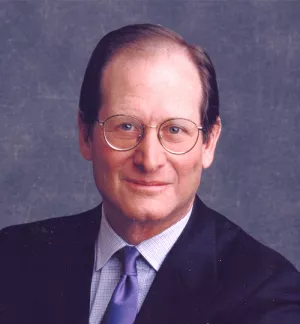For more than 200 years, there has been a great debate about whether elected representatives should be trustees for the whole nation or delegates for the constituents of their district or State.
This democratic dilemma---small "d"---is now vividly on display as a group of centrist senators determine the final shape of health care reform, indeed decide whether there will be health care reform at all.
None is in a more precarious position as "delegate" than Blanche Lincoln, Democratic senator from Arkansas. She is the only one of the moderates up for re-election next year, and she is facing thunder on the right and on the left in her home state, which voted overwhelmingly for John McCain last year (59% to 39%).
One of the most famous statements of the trustee ideal (at least if you took government courses in college) is Edmund Burke's speech to the electors of Bristol, England in 1774. After he had won his seat, he rejected the position, taken by his opponent, that representatives should follow instructions from their constituents.
"...it ought to be the happiness and glory of a representative to live in the strictest union, the closest correspondence and the most unreserved communication with his constituents.....But his unbiased opinion, his mature judgment, his enlightened conscience, he ought not to sacrifice to you, to any man, to any set of men living....Your representative owes you, not his industry only, but his judgment; and he betrays, instead of serving you, if he sacrifices it to your opinion.
"Parliament is not a congress of ambassadors, from different and hostile interests....but parliament is a deliberative assembly of one nation, with one interest, that of the whole....the general good, resulting from the reason of the whole. You choose a member, indeed; but when you have chosen him he is not a member of Bristol, but he is a member of parliament."
Similarly, in the equally famous Federalist Number 10, James Madison, evoking the trustee ideal, argued 15 years later that the republican form of government envisioned by the new Constitution would avoid the "violence of faction" by electing representatives from a broad, diverse crosssection of citizens. Such representatives to the national government will be those
"whose wisdom may best discern the best interest of their country, and whose patriotism and love of justice will be least likely to sacrifice it to temporal or partial considerations.....The Federal Constitution forms a happy combination....; the great and aggregate interests being referred to the national, the local and particular to the State legislatures."
Yet, Madison and Hamilton also argued that, by having many different voices and interests represented in the halls of government (the delegate concept) and mediated through the system of checks and balances, no single factional interest could dominate and compromises for the public good would be necessary.
Which brings us back to Ms. Lincoln, a person who describes herself as delegate from her State, not trustee of the nation. In determining her position on the health care bill, she has been quoted as saying: "I think what is most important for me is to take a look at what is presented on behalf of Arkansans and figure out whether it is something that really makes sense. I am responsible to the people of Arkansas, and that is where I will take my direction." Her official Senate biographical page notes that her tenure has been marked by "a fierce loyalty to the people of Arkansas and their shared values."
Her record since her 1998 election to the Senate (55%-42%) and her 2004 re-election (56%-44%) has been moderate, sometimes leaning left, sometimes right (support of Iraq war, the Bush tax cuts and limits on late-term abortions). In the health care debate, Senator Lincoln has expressed opposition to the "public option" and is concerned about the bill's inability to stop rising health care costs. But, as a member of the Senate Finance Committee she supported health subsidies to extend health coverage to millions as well as protections from insurance denial for those with preexisting conditions.
Her problem today is that she is running 6-8 points behind the leading Republican challenger; she has been targeted by the Republican Senatorial campaign as vulnerable; her approval ratings have slumped; and one or two Democrats may challenge her in next year's primary if she obstructs health care reform. Some Arkansas polls show a majority in the state opposing the health care reform bill. Recall: she was the last of the 60 votes needed recently just to let the health care debate proceed in the Senate.
So the dilemma for her is excruciating---and the threat to her party's priority program is palpable. Will she put her finger to the home state wind and, in the end, decide what is the best way to be the Arkansas delegate (and get re-elected)? Or will she be willing to be the 60th vote to stop the filibuster (acting as trustee) and help enact landmark legislation, even if the bill up on final vote does not meet her home state political needs or even every one of her requirements?
Of course, people might say, she has to do what is necessary for her constituents to get re-elected. But it worth remembering that, in the past, senators have voted as trustees of the nation even though they knew it meant certain defeat at the polls. A young senator from Massachusetts wrote a book in the mid-50s about such statesmen. It was called Profiles in Courage.
It told the stories of men like John Quincy Adams who supported President Jefferson's 1807 embargo against Great Britain in retaliation for British aggression against the American merchant fleet even though the embargo was extremely unpopular in Massachusetts. Adams resigned from the Senate after a storm of protest in 1808. Or Thomas Hart Benton, Senator from Missouri, who opposed the introduction of slavery in new territories, even though his was a slave-owning state. He lost his seat in the 1850s. Or Edmund Ross, Senator from Kansas, who opposed the Radical Republicans in his own party and voted against impeaching Andrew Johnson for removing Edward Stanton as Secretary of War (and proponent of harsh treatment of the South) contrary to a law (later declared unconstitutional) preventing the president from removing cabinet officers without Senate consent.
So, as we watch the Senate end game on health care over the next few weeks, we will not just be observing the fate of the hallmark domestic initiative of the Obama Administration. We will also be witness to the latest act in the timeless drama of the democratic dilemma---elected representative as trustee or delegate---which has been playing out since our nation was born.
* * * * *
A post-script. Edmund Burke was true to his principles. Four years after his famous "electors" speech, he supported more free trade with Ireland. This outraged his constituents in Bristol, a trading center that benefited from the status quo. This, and other principled positions, led him to withdraw from the Bristol election in 1780 and accept a "safe" parliamentary seat in a "rotten borough" controlled by an aristocratic patron where he served until 1794. A principled position but a soft landing in an undemocratic jurisdiction.
Heineman, Ben. “Blanche Lincoln and the Democratic Dilemma.” The Atlantic, December 8, 2009


